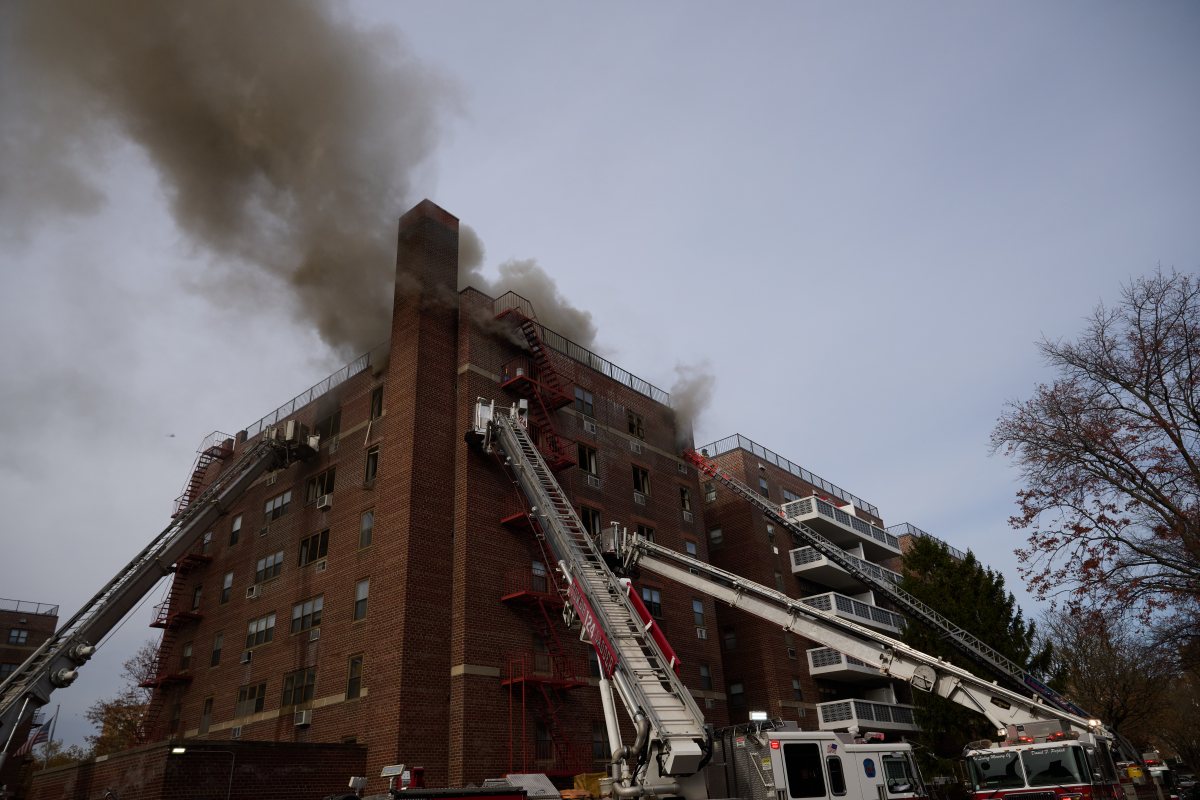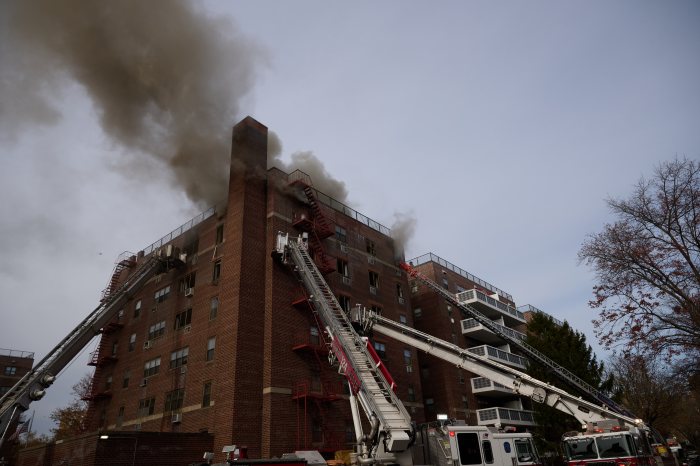By JERRY TALLMER
There are tears of sorrow, tears of joy, tears of anger, and then there’s another kind: tears of memory.
Those are the ones I had to fight back down when, in reading a play called “Shakespeare, Moses, and Joe Papp,” I came, early on, to where some unknown guy named Papp is on the telephone in 1955 trying to inveigle a deep-voiced Negro actor named Browne into taking a role in an upcoming Shakespearian production.
“No, Mr. Browne, I’m not offering you Othello. It’s Brutus. ‘…As Caesar was valiant, I honor him…’”
Browne, finishing the line in matchless British accent: ‘…but, as he was ambitious, I slew him.’”
Papp: “Except not that way. You’re American. This is an American production… .”
Roscoe Lee Browne: “It’s an all-Black production, right?”
Papp: “Your wife will be a freckled redhead, Colleen Dewhurst… .”
Well, Colleen was no redhead and I don’t remember the freckles, but let that pass. The point is that Joe Papp was the Branch Rickey of American theater, the single go-to-hell human being who did the most to smash and erase the color line in that particular universe for, God willing, all time.
Though to Robert Moses, were he still alive, all that wouldn’t amount to a hill of beans — would indeed confirm his conviction that (as this play puts it) “free Shakespeare in the Park is a Communist plot.” But it’s what swept me back into loving recollection of the very first days and principles of Joe Papp’s 1955-’56 Lower East Side Shakespearean Workshop Theater a few years before the titanic clash between Joe and “Keep Off the Grass” Super Commissioner Robert Moses.
Nobody who lived through another and correlative titanic clash — Greenwich Village and points south vs. a Robert Moses Six-Lane Superhighway through Washington Square — could fail to find plenty of good red meat in the play I was reading, Ernest Joselovitz’s “Shakespeare, Moses, and Joe Papp.”
Though never yet produced in New York, it had an award-winning six-week run some eight or nine years ago at the Round House Theatre in the Washington, D.C., suburb of Rockville, Maryland.
You can bet that Ernest Joselovitz will be on hand when there’s an onstage reading of that play — I mean with real live actors — 7:30 p.m. this coming Mon., March 7, here in New York at The Players, 16 Gramercy Park South. Admission free. No reservations.
The actors, under the direction of Sturgis Warner, are Gerry Bamman as Robert Moses, Matthew Rauch as Joseph Papp, Andrew Dolan as Mayor Robert F. Wagner and, in other roles, Francis Jue, Zach Kleinsmith and Marguerite Simpson (as Peggy Papp, Joe’s actress wife at the time of the play).
The play opens with two thumbnail portraits of the two larger-than-life opponents. First, Moses, sitting at his desk, looking at his own CV as the battle royal nears climax in 1958:
“Went to Yale University, Oxford and Columbia. Entered the Civil Service in 1922. By 1958 Robert Moses was the New York State and City Parks Commissioner, controlled the New York State Public Works Department, New York State Power Authority, New York Bridge and Tunnel Authority. Among other things. Robert Moses built every bridge and tunnel and highway in the state and city of New York, every single public house or building, for thirty-five years. By 1958, Robert Moses had built over six hundred parks in New York.”
In truth, Moses had been too busy worrying about the construction of his final pride and joy, the Verrazano Bridge, to pay much attention to this radical punk named Papp, whom he, Bob Moses, could squash like a bug when he got around to it… .
The bug had a very different background:
“Joe Papp, a.k.a. Yussel Papirofsky, son of Yetta and Shmuel, a trunk maker who was usually unemployed. Did not attend Yale or Oxford or Columbia. Graduated high school to work as a janitor, a barker on Coney Island, delivered laundry. Among other things. Then he joined the Navy. Which is when he started to put on shows. After the war he joined a sheet metal factory and the Actors’ Lab, which was mostly Communists, like himself… . He wandered through a few marriages and a job as floor manager for CBS” — until HUAC, the House Committee on Un-American Activities, put an end to that.
That’s the on-the-record story, the background story. But what’s between the lines here is a deeper dynamic, summed up in the play by genial whiskey-sipping Mayor Bob Wagner as “two Jews fighting over Hey Nonny Nonny.”
Robert Moses, as noted in Robert A. Caro’s masterful biography, “The Power Broker,” was of that breed of moneyed German-American Jews who are only almost invisibly Jewish. The German-American aristocrats who, as rich old Jacob Schiff once put it, “do missionary work among the Russians” — i.e., immigrants from anywhere in Eastern Europe.
And Yussel Papirovsky, or certainly his parents, would fit into that mold to a “T.”
So, in fact, does playwright Ernest Joselovitz, or at least his antecedents back in Lithuania.
“Yes, sure, I’m on that side, the Ashkenazi,” said Joselovitz on the phone from Washington.
How did he come to write “Shakespeare, Moses, and Joseph Papp”?
Easy. Some years ago, Papp himself came down to Washington to see a play by Joselovitz called “Hagar’s Children.” Then he brought the play and all its actors up to the Public Theater in this city.
Ernest Joselovitz was impressed.
Robert Moses would not have been.



































